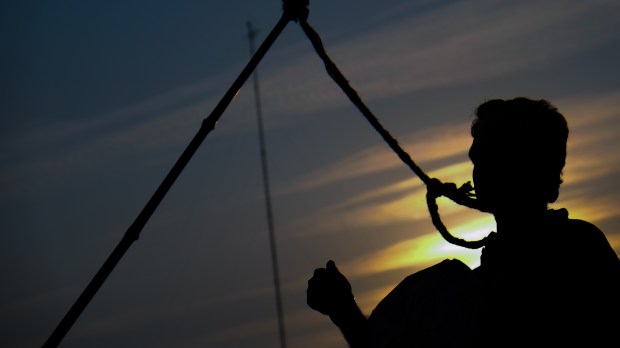Pope Francis’ position on the death penalty is abolitionist. He believes there is no moral ground in Catholic teaching that would justify any state using capital punishment today, and he has set up a commission to review the question and the relevant section of theCatechism of the Catholic Church to amend this.
Right now the catechism does not exclude the use of the death penalty in extreme situations. It says in No. 2267:
Assuming that the guilty party’s identity and responsibility have been fully determined, the traditional teaching of the Church does not exclude recourse to the death penalty, if this is the only possible way of effectively defending human lives against the unjust aggressor.
If, however, non-lethal means are sufficient to defend and protect people’s safety from the aggressor, authority will limit itself to such means, as these are more in keeping with the concrete conditions of the common good and more in conformity to the dignity of the human person.
Today, in fact, as a consequence of the possibilities which the state has for effectively preventing crime, by rendering one who has committed an offense incapable of doing harm—without definitely taking away from him the possibility of redeeming himself—the cases in which the execution of the offender is an absolute necessity “are very rare, if not practically nonexistent.”
Over the past half century, a development has taken place in the church’s position regarding capital punishment. Some consider it a development in church teaching. This has come about in parallel to growing opposition to it in civil society, particularly in Europe, but also in the United States and elsewhere.
Ever since John XXIII, popes, whenever requested, have appealed to state authorities on behalf of individuals about to be executed. It became common practice for the Holy See to do so under St. John Paul II. Bishops’ conferences in many lands, including the United States, have done likewise and pushed for abolition.
As for church teaching, the historical record shows there was considerable discussion around this issue during the drafting of the new catechism. Some wanted the abolitionist stance recognized, but that did not happen. Many were unhappy with the first published text (1992), but this was amended following St. John Paul II’s encyclical “The Gospel of Life” in 1995.
Photo: Wikipedia

